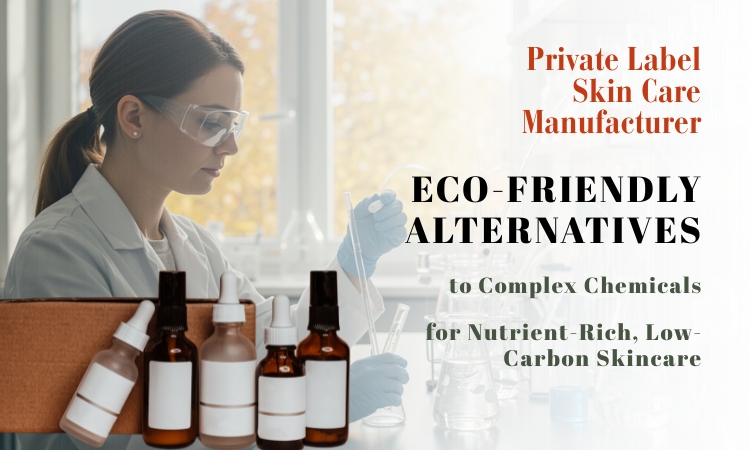
Private label skin care product manufacturer-Decoding Complex Chemicals with Eco-Friendly Substitutes for Nutrient-Rich, Low-Carbon Skincare Formulations"
Private label skin care product manufacturer-Decoding Complex Chemicals with Eco-Friendly Substitutes for Nutrient-Rich, Low-Carbon Skincare Formulations" | Why Decoding Complex Ingredients Matters in Today’s Skincare | The Manufacturer’s Role: Creating Safe, Low-Carbon & High-Performance Products | Chemical Breakdown: Common Ingredients We’re Rethinking | Why Brands Are Choosing Aadhunik Ayurveda for Clean Formulations | Our Manufacturing Approach: Ingredient Transparency, Custom Formulations & Certifications | The Low-Carbon Advantage: From Source to ShelfThe skincare industry is at a pivotal point. Consumers are increasingly aware of what goes into their products, not just in terms of their efficacy but their impact on skin health and the planet. As a private label skincare product manufacturer, we understand the importance of formulating products that align with these new demands.
Gone are the days when flashy packaging and catchy promises were enough. Today, consumers expect clean, eco-friendly skincare private label formulations with effective results. As a result, skincare brands need to rethink the ingredients they use, not just for the sake of consumer trust, but for long-term sustainability and skin health.This shift has given rise to custom organic skincare solutions with natural ingredient skincare formulation that combine performance with planet-conscious practices.
That’s why our lab at Aadhunik Ayurveda focuses on something radically simple: replacing complex chemicals with nutrient-rich, chemical-free cosmetic formulation.Think of it as green chemistry with real-world results.
We’re not just removing harmful additives—we’re designing formulations that are:
- Gentle but powerful
- Backed by science, aligned with Ayurveda
- Sustainable, ethical, and effective
- Globally compliant, including with MOCRA
Whether you’re just starting your skincare line or evolving your current range, we’re here to help you create a collection that aligns with modern values and modern skin needs.
Why Decoding Complex Ingredients Matters in Today’s Skincare
In today’s competitive market, consumers are more discerning than ever before. They want to know exactly what’s in their products, why it’s there, and how it benefits them. This growing demand for transparency has prompted a reevaluation of traditional ingredients used in skincare, many of which are derived from petrochemicals, synthetic sources, or potentially harmful processes.
As a green skincare contract manufacturer, it’s our responsibility to decode these ingredients and replace them with safer, environmentally safe skincare products. Many popular cosmetic ingredients provide short-term benefits, such as smoother skin, but they come with hidden costs. These ingredients can irritate the skin, cause long-term damage, or harm the environment when they enter the ecosystem after product use.
Aadhunik Ayurveda leads the way with eco-friendly skincare formulation India practices rooted in green chemistry."- the idea of creating effective skincare with minimal environmental impact. We believe in creating safe, chemical-free formulations that offer lasting results without relying on harmful chemicals.
The Skin care products Manufacturer’s Role: Creating Safe, Low-Carbon & High-Performance Products
At Aadhunik Ayurveda, our role as a manufacturer is more than just creating products that look good on the shelf. We strive to build formulas that serve a greater purpose, supporting the health of both skin and the planet. This means being mindful of every ingredient, understanding its benefits and potential risks, and finding the best alternatives that uphold our values of sustainability, transparency, and effectiveness.
We also adhere to the highest standards of manufacturing to ensure that our products are GMP, FDA, MOCRA-compliant (Modernization of Cosmetics Regulation Act) and certified organic, ensuring that every product we produce is safe, clean, and ethically sourced.
Chemical Breakdown: Common Ingredients We’re Rethinking
Below, we’ll explore the most common ingredients that have been historically used in skincare and wellness products. While they offer benefits, these ingredients often come with serious drawbacks, especially when it comes to their impact on skin health, sustainability, and environmental damage. We'll also discuss cleaner, more eco-friendly alternatives. We proudly serve as a private label nutrient rich skin care and safe skin care manufacturer India, supporting global brands looking for low carbon footprint skincare products.
1. Ethyl Linoleate (Linoleic Acid)
What it is: Ethyl linoleate is a derivative of linoleic acid (an omega-6 fatty acid), used in skincare for its emollient and moisturizing properties.
Concerns: While linoleic acid is beneficial, synthetic ethyl linoleate can be unstable and may oxidize easily, leading to skin irritation. It’s often used in formulations without proper stabilization, which reduces its efficacy and safety.
Eco-Conscious Alternative: Use cold-pressed oils rich in linoleic acid such as rosehip seed oil, hemp seed oil and many more. These oils deliver nourishment and help maintain the lipid barrier, especially for acne-prone or inflamed skin.
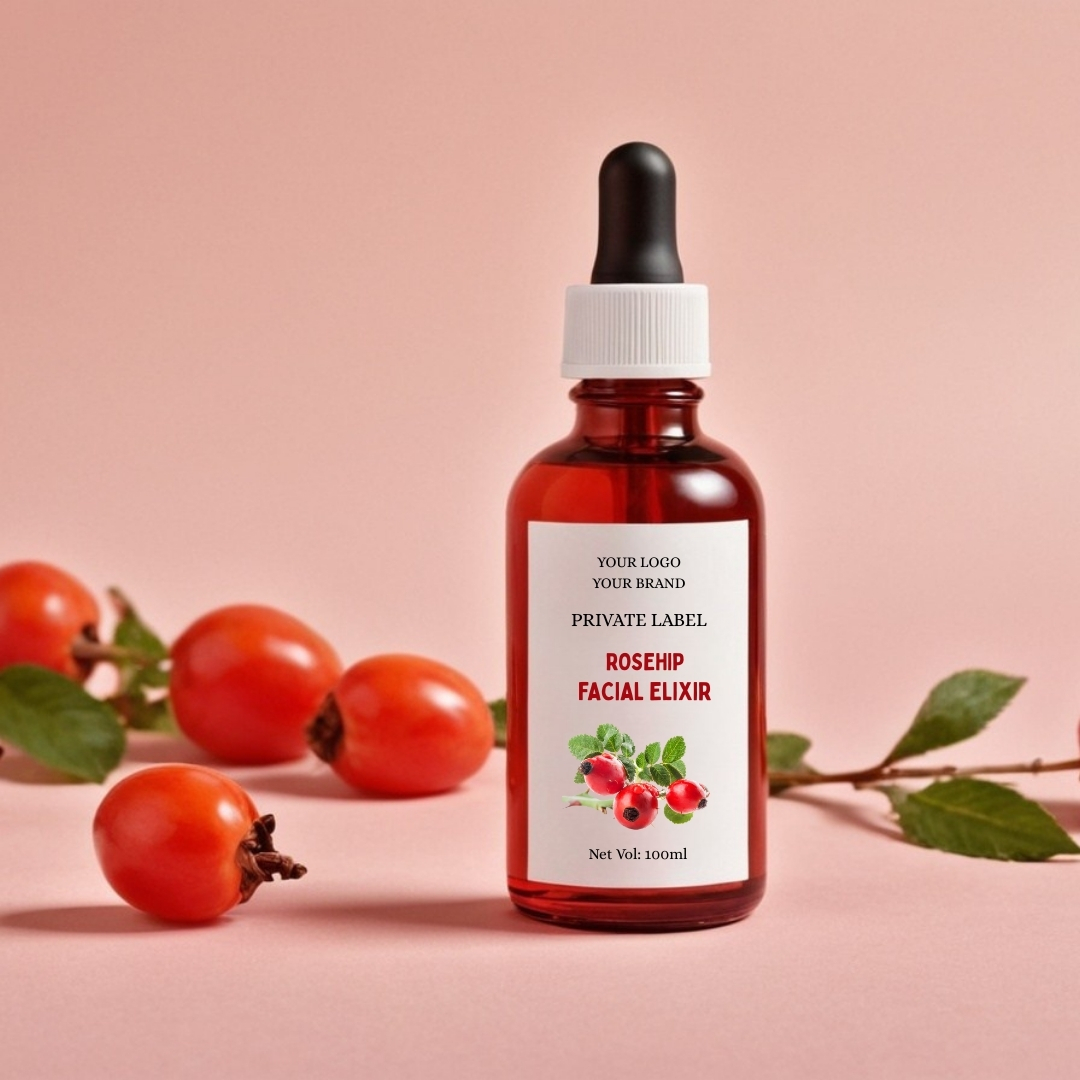
Product: Private Label Rosehip Facial Elixir – A naturally rich source of linoleic acid for balancing sebum and reducing blemishes.
2. Acrylates/C10-30 Alkyl Acrylate Crosspolymer
What it is:It’s a petroleum-derived plastic polymer that’s non-biodegradable and contributes to microplastic pollution in waterways.
Concerns: It’s a petroleum-derived plastic polymer that’s non-biodegradable and contributes to microplastic pollution in waterways.
Eco-Conscious Alternative: Natural thickeners like xanthan gum, sclerotium gum, or chia seed mucilage offer similar textures without environmental harm.
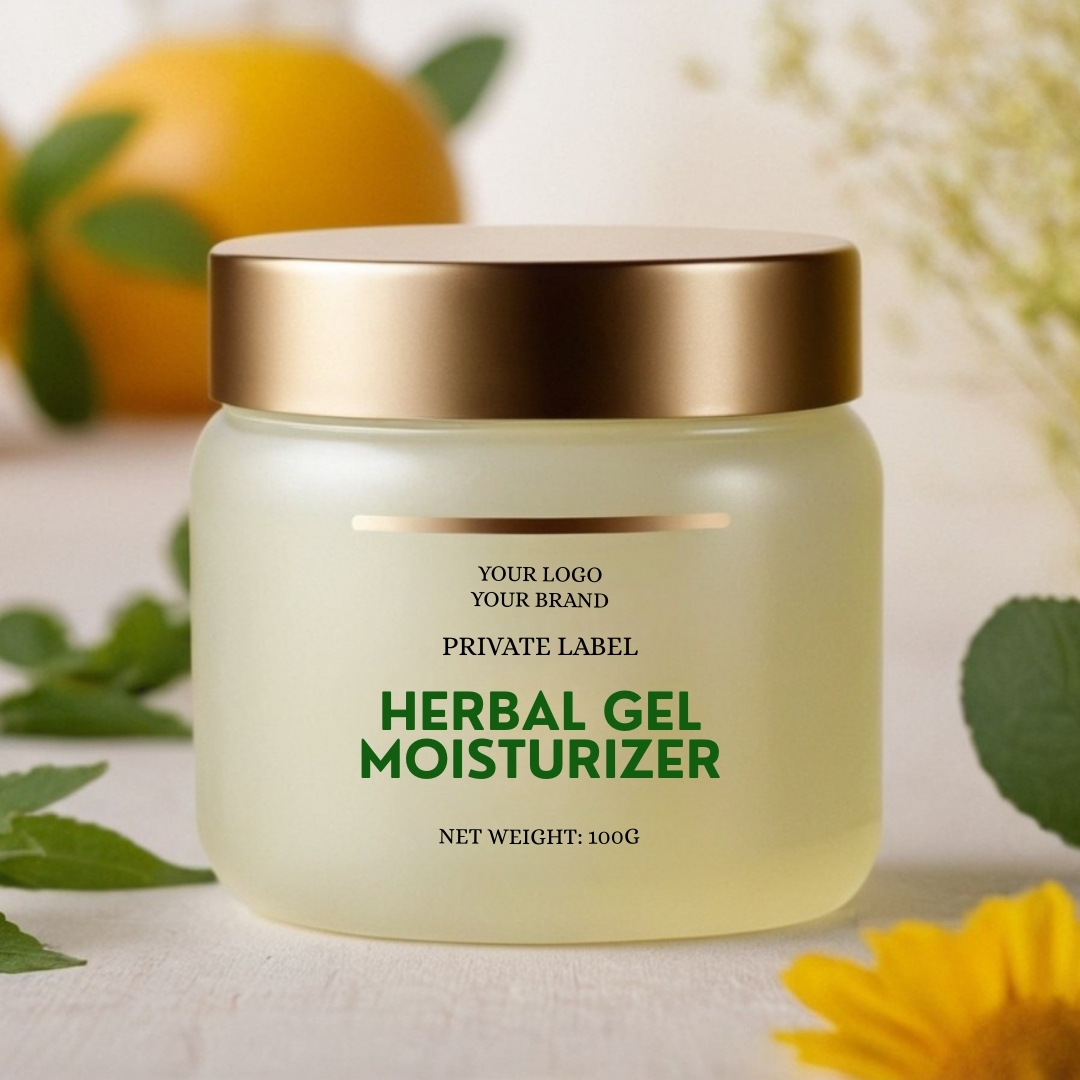
Product: Private Label Herbal Gel Moisturizer – A silky, plant-thickened gel with aloe vera and botanicals for hydration and barrier support.
3. Silicones
What it is:Dimethicone, cyclopentasiloxane, and other silicones are used to create a smooth, "blurred" finish on skin and hair.
Concerns: Silicones form a non-breathable barrier, which can trap dirt, bacteria, and sebum—especially problematic for acne-prone skin. They’re also non-biodegradable, polluting ecosystems when rinsed off.
Eco-Conscious Alternative: Plant-based emollients like squalane, mango butter, or jojoba, coconut, or moringa oil the smoothing effect while nourishing the skin.
Product: Private Label Silicone-Free Face Cream – Lightweight hydration with squalane and jojoba oil for all-day softness.
4. Parabens
What it is:Widely used preservatives such as methylparaben and propylparaben to extend product shelf life.
Concerns: Parabens are endocrine disruptors and can mimic estrogen in the body, posing risks of hormonal imbalance.
Eco-Conscious Alternative: Natural preservation systems using radish root ferment, gluconolactone, or rosemary extract ensure product stability without hormonal interference.
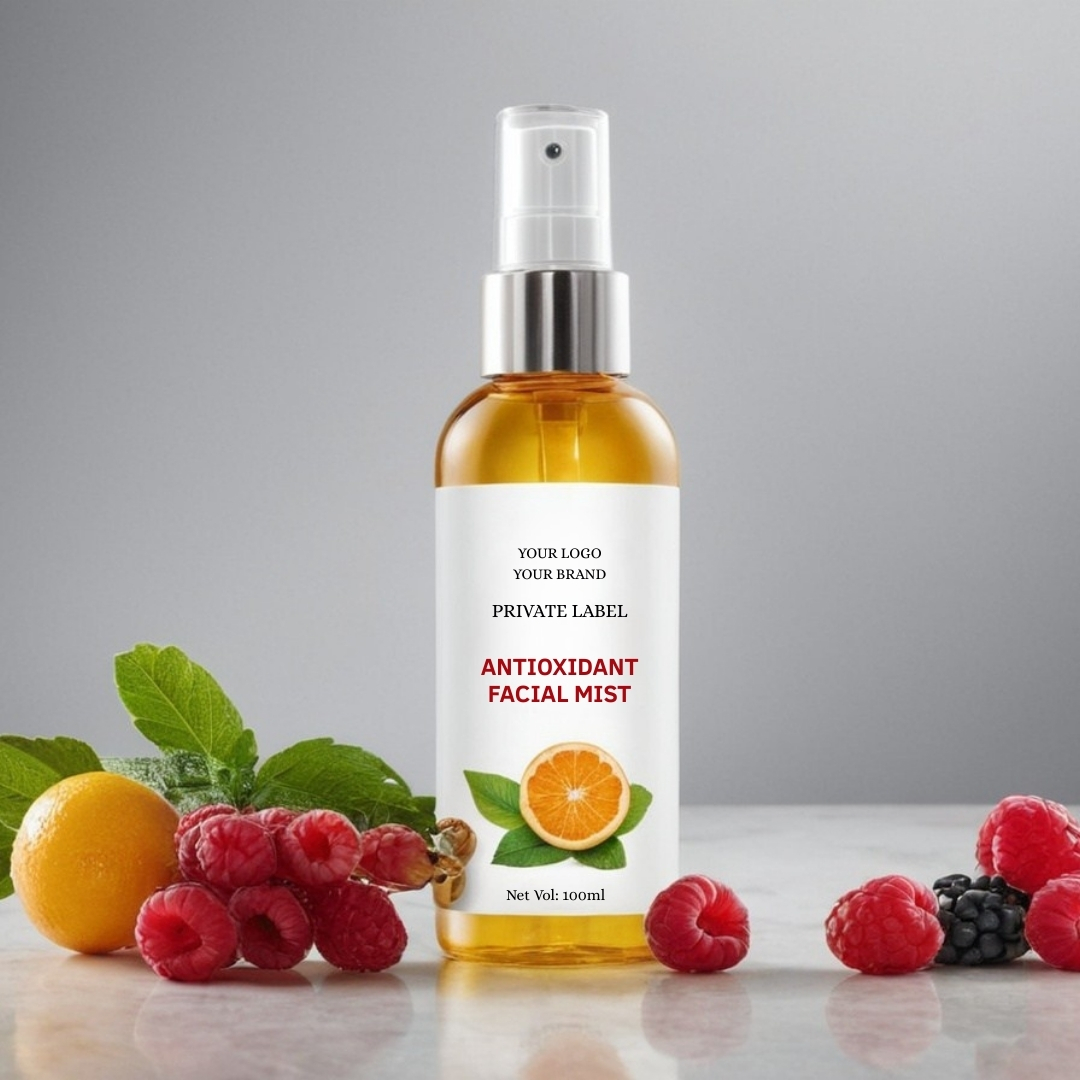
Product: Private Label Antioxidant Facial Mist – Preserved naturally with hibiscus and vitamin E.
5. Mineral Oil
What it is:A cheap, petroleum-derived occlusive that locks moisture in.
Concerns: It creates a plastic-wrap effect on the skin, interfering with natural sebum regulation and increasing the risk of breakouts.
Eco-Conscious Alternative:Cold-pressed almond oil, sesame oil, or hemp seed oil offer deep nourishment and help restore skin’s lipid balance.

Product: Private Label Baby Massage Oil – A 100% natural blend of almond, sesame, and turmeric oils.
6. Petroleum (Petrolatum)
What it is: Used in ointments, balms, and salves to seal in moisture.
Concerns: Petroleum is non-renewable, and its processing emits carbon and pollutants. It also sits inertly on the skin, providing no nutrient value.
Eco-Conscious Alternative: Beeswax, candelilla wax, and kokum butter provide natural occlusion with added skin-loving nutrients..

Product: Private Label Herbal Healing Balm – A petroleum-free formula using beeswax and calendula for barrier repair.
7. SLES (Sodium Laureth Sulfate)
What it is: A harsh surfactant and foaming agent found in shampoos, cleansers, and body washes.
Concerns: SLES can strip skin’s natural oils, cause barrier disruption, and irritate sensitive skin.
Eco-Conscious Alternative: Decyl glucoside, cocamidopropyl betaine, and soapnut extract gently cleanse without disturbing the skin’s pH.
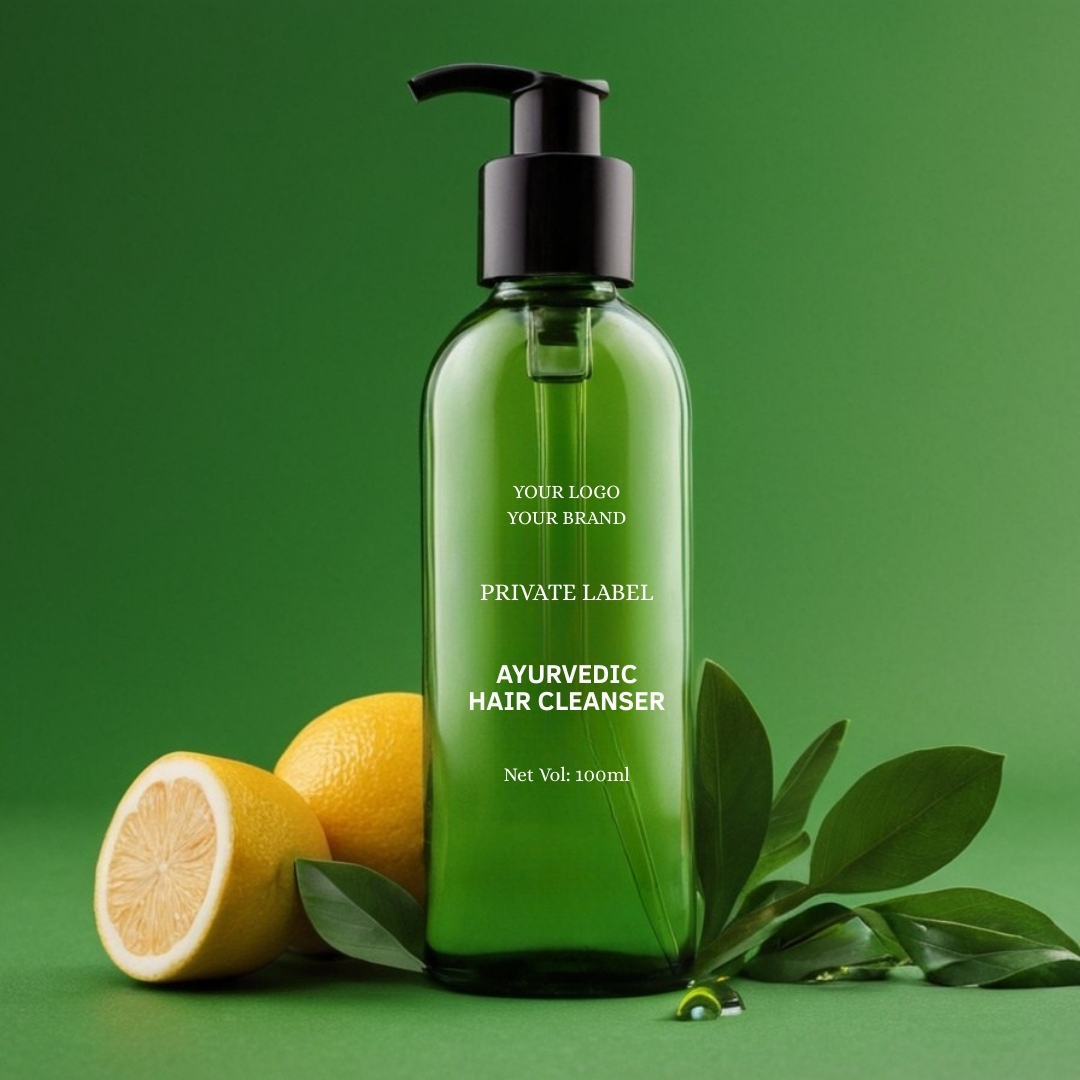
Product: Private Label Ayurvedic Hair Cleanser – A sulfate-free shampoo powered by reetha and shikakai.
8. Polyethylene (Microbeads)
What it is: A plastic polymer used in scrubs and exfoliating products.
Concerns: Microbeads are banned in several countries due to their severe environmental threat to marine life.
Eco-Conscious Alternative: Walnut shell powder, rice powder, jojoba beads, or oat flour provide gentle exfoliation and are biodegradable.
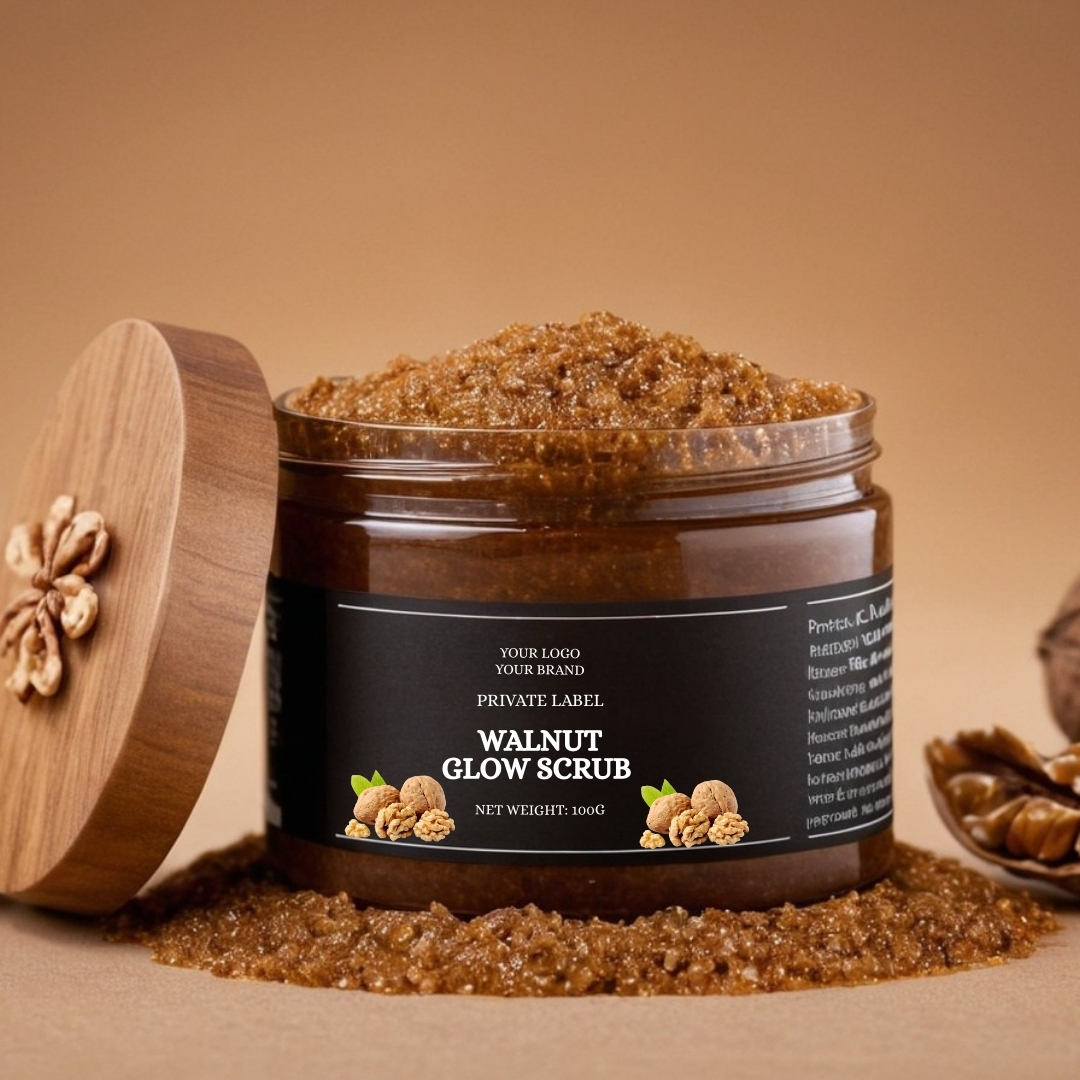
Product: Private Label Walnut Glow Scrub – A zero-plastic exfoliant with crushed walnut shell and sandalwood.
9. Synthetic Fragrances
What it is: Chemically created aromas that often contain phthalates and allergens.
Concerns: Synthetic fragrances can trigger headaches, allergies, and hormonal disruptions, and are often not disclosed in full due to trade secret loopholes.
Eco-Conscious Alternative: Steam-distilled essential-oils, flower hydrosols, and aromatherapeutic blends provide safe, sensory pleasure.
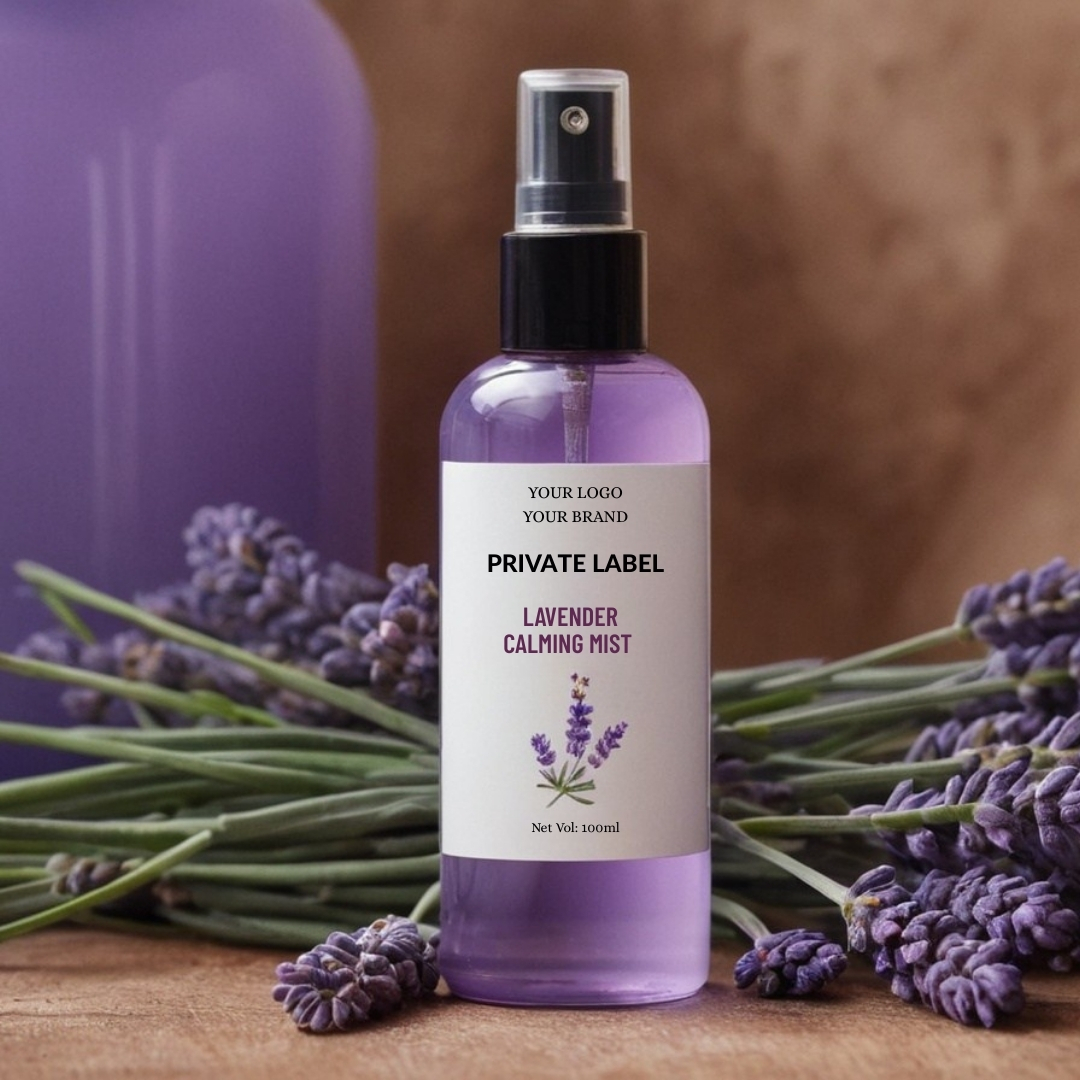
Product: Private Label Lavender Calming Mist – A naturally scented mist with lavender and chamomile hydrosols.
10. Synthetic Colorants
What it is: Lab-created dyes and pigments used for visual appeal.
Concerns: Many synthetic dyes are derived from coal tar or petroleum and may contain heavy metals that accumulate in the body.
Eco-Conscious Alternative:Beetroot powder, turmeric, madder root, and indigo provide natural, safe coloration.
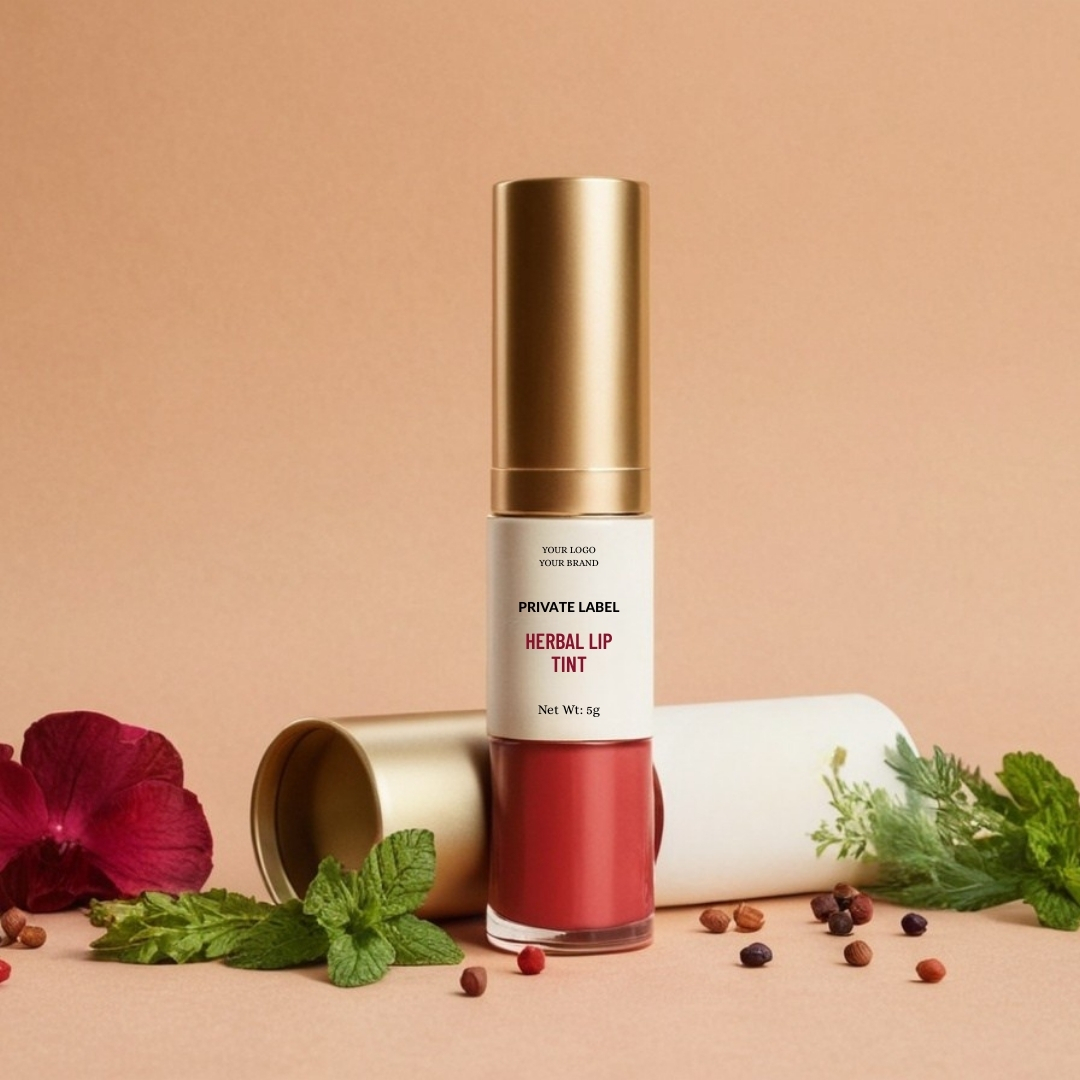
Product: Private Label Herbal Lip Tint – Colored naturally using beetroot and alkanet root.
11. PEGs (Polyethylene Glycols)
What it is: Used as emulsifiers and skin-penetration enhancers.
Concerns: PEGs can be contaminated with ethylene oxide and 1,4-dioxane, both of which are potential carcinogens.
Eco-Conscious Alternative:Use plant emulsifiers like lecithin, cetearyl alcohol, or glyceryl stearate, which are biodegradable and chemical free.
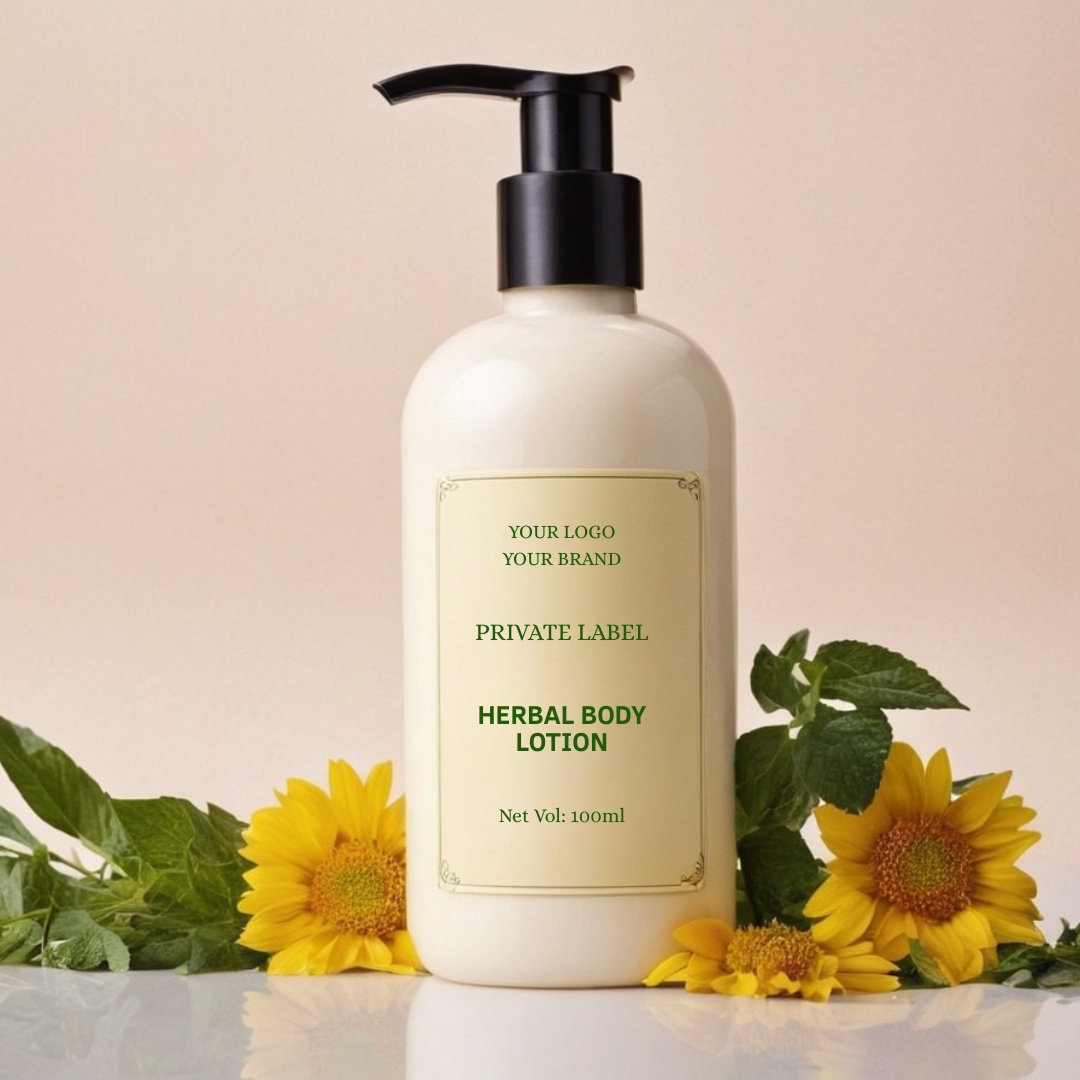
Product: Private Label Herbal Body Lotion – A PEG-free formula with nourishing herbs and clean emulsifiers.
Conclusion:
In a world where sustainability, transparency, and efficacy matter more than ever, Aadhunik Ayurveda is proud to lead as a herbal ingredients skin care manufacturer and organic skincare manufacturer and supplier. From private label chemical-free skincare to eco-friendly skincare private label exports, we’re here to help you create beauty that nourishes both skin and soul.
Newly Integrated: Supporting Clean Beauty with Low Carbon Footprint Skincare Products & Natural Preservatives
Our products stand apart for their use of skin care with natural preservatives India and ethically sourced ingredients that reduce environmental impact and elevate skincare standards across India and globally.
FAQs:
How does Aadhunik Ayurveda help brands comply with MOCRA?
We ensure all formulations meet GMP, ISO, MOCRA requirements through proper documentation, ingredient safety, and product labeling.
Are your raw materials ethically and sustainably sourced?
Yes, we prioritize ethically sourced, eco-certified ingredients for every product to deliver clean and conscious skincare.
Can you manufacture skincare for sensitive or compromised skin types?
Definitely—our formulations are free from known irritants and developed to be gentle yet effective.
Can you customize clean, MOCRA-compliant skincare for niche brands?
Yes, we offer tailored, toxin-free formulations for brands seeking transparency and regulatory compliance.
What makes Aadhunik Ayurveda a top choice for private label chemical-free skincare?
We specialize in chemical-free cosmetic formulation using herbal, Ayurvedic, and nutrient-rich ingredients. Our facility is certified for safe, eco-conscious manufacturing and complies with global standards _in vitro and in vivo tests, including FDA, MOCRA.
Do you offer solutions for custom organic skincare in India for brands?
Yes, our in-house formulation team works with brands to create custom organic skincare in India tailored to specific needs, skin types, and values.
Are your formulations suitable for global export?
Absolutely. As a sustainable skincare private label exporter and private label green beauty exporter, we comply with international regulations, offering clean label cosmetic manufacturer services worldwide.
Can I develop ayurvedic cosmetic products with your team?
Yes, as an ayurvedic cosmetic third party manufacturer, we specialize in formulations that merge Ayurveda with modern science for holistic skincare.
How to develop clean private label skincare products?
Its simple, you need a approach a manufacturer who just works with clean safe ingredients only and has experience of exporting products to various countries like U.S, U.K, Canada, Australia, Japan Singapore etc.
How to achieve Clean Innovation in Ayurvedic Skincare Industry?
Ayurveda itself means the science of care, protect and heal using all that is available in our surroundings, provided by our Mother Earth. Hence if products are truly Ayurvedic, they are indeed made with clean ingredients only.